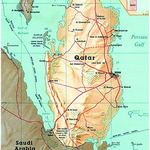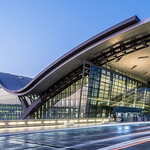Important warnings and things to avoid in daily life in Qatar
Living in or visiting Qatar can be a rewarding experience, but there are several important warnings and things to avoid in daily life due to cultural, legal, and environmental considerations.
Here’s a comprehensive guide:
Cultural & Legal Warnings
- Dress Modestly
- Avoid: Revealing clothing in public places (shorts, sleeveless tops for women).
- Tip: Cover shoulders and knees; especially important in malls, government buildings, and traditional areas.
- Public Displays of Affection
- Avoid: Kissing, hugging, or excessive touching in public—even between married couples.
- Tip: A handshake or minimal contact is generally acceptable.
- Alcohol Laws
- Avoid: Drinking alcohol in public or being drunk in public.
- Tip: Alcohol is only permitted in licensed venues (e.g. certain hotels) and at home (with a permit for residents).
- Drugs
- Avoid: Any illegal drugs—Qatar has zero tolerance, and penalties include long prison sentences or deportation.
- Swearing or Rude Gestures
- Avoid: Offensive language, rude gestures, and aggressive behavior.
- Tip: This can lead to fines or jail, especially if directed at locals or in traffic disputes.
- Photography Restrictions
- Avoid: Taking pictures of military areas, government buildings, locals (especially women) without consent.
- Tip: Always ask before photographing people.
- Respect for Religion
- Avoid: Criticizing Islam, proselytizing (preaching another religion), or disrespecting religious customs.
- Tip: During Ramadan, do not eat, drink, or smoke in public during daylight hours—even as a non-Muslim.
- Social Media Caution
- Avoid: Posting negative or offensive content about Qatar, locals, or its laws.
- Tip: Defamation laws are strict—even if the content is meant as a joke.
Safety & Practical Daily Tips
- Traffic & Driving
- Avoid: Speeding, tailgating, and ignoring traffic signs—cameras are everywhere.
- Tip: Accidents are common, and rules are enforced strictly. Always carry your license and ID.
- Heat & Sun Exposure
- Avoid: Prolonged exposure during midday (May–September).
- Tip: Temperatures often exceed 45°C (113°F). Stay hydrated and use sun protection.
- Dehydration
- Avoid: Going out without water—especially for outdoor workers or tourists.
- Tip: Always carry a water bottle and electrolytes.
- Wildlife and Marine Life
- Avoid: Touching jellyfish, sea urchins, or desert snakes/scorpions.
- Tip: Seek medical help if stung or bitten; first aid is readily available.
- Expat Etiquette
- Avoid: Assuming everyone speaks English or behaves like in the West.
- Tip: Learn basic Arabic greetings and show respect for local norms.
During Religious Periods (e.g. Ramadan)
- Avoid: Eating or drinking in public during fasting hours.
- Avoid: Loud music or parties during the holy month.
- Tip: Respect the quieter, more reflective atmosphere of the country during this time.
Additional things to take note:
- Watch out for separate counters and sections for women in banks and utilities.
- Wait for shaking hands with people. Handshakes are often refused to members of the opposite sex.
- Do not ask an Arab lady for information or directions if you are a man.
- Do not refuse the welcome coffee, since it is a hospitality symbol.
- Do not take photographs without permission of people or sensitive sites.
- Do not stare at people closely, it is considered impolite.
- Do not sit with the soles of your shoes/feet facing towards your Qatari hosts, it is an insult.
Business hours
- The work week is from Sunday to Thursday (Fridays and Saturdays are days off).
- Government offices are open from 7:00am to 2:00pm.
- Shop opening hours are 8:30am – 12:30pm and 4:00pm – 9:00pm.
NOTE: In Qatar, outdoor work is restricted during the summer months to protect workers from extreme heat. From June to September, work in open areas is banned between 10:00 AM and 3:30 PM. This ban is enforced to prevent heat-related illnesses and injuries. The Ministry of Labour also conducts awareness campaigns and inspections to ensure compliance.
Workplace and Residency
- Exit Permit System / Sponsorship
- Avoid: Planning travel or job change without understanding the Kafala (sponsorship) system.
- Tip: While many reforms have been made, it’s best to check with your HR or MOI (Ministry of Interior).
- Visa Violations
- Avoid: Overstaying your visa or working without a proper permit.
- Tip: Heavy fines or deportation may apply.
- Labor Law Awareness
- Avoid: Assuming labor protections are the same as in your home country.
- Tip: Know your rights—Qatar has been reforming its labor laws, especially for expats.
Language
Arabic is the official language, but English is also widely spoken. Doha means « the big tree » in Arabic.
Most Qatari feel honored to see their guests speaking a few words in Arabic, so learn the basics:
Hello / Welcome = marhaba or ya hala
Peace be upon you = assalam alaykum
And upon you be peace = wa’alaykum salam
Good morning / Good afternoon = sabah al khair / massa al khair
Goodbye, Go in peace = ma’a salaamah
How are you? = kaif haalak?
Please = min fadlak
Thank you = shukran
God willing = insh’Allah
Yes / No = na’am or aiwa / la
Congratulations = mabrook
Hand gestures
- Hand gestures in Qatar are serious matters and can cause you legal punishments, from fines to imprisonment. To prevent being misinterpreted, avoid the following gestures:
- Using your finger to ask (gesture) anyone to come to you or to point someone or something; instead, you may use your hand-palm.
- Doing the thumbs-up sign – it has an offensive connotation, like using the middle finger in western countries.
- Crossing legs – it can be interpreted as arrogance or as a sign of disrespect, especially if you are sitting in front of an aged person or someone of a higher hierarchical position.
- Lifting the sole of your shoes in front of people or making a gesture with your feet to anyone.
Non-verbal communication
- On the other hand, body language or non-verbal communication is quite common in Arabic cultures, such as the following gestures:
- Touching all your fingertips together while holding your hand out means to be patient or to wait.
- Holding your hand outwards with the palm down and then suddenly twisting it upwards means “Why?” or “What?”.
- Tilting your head to the side with a smile usually means yes.
- Leaning your head back with your chin and eyebrows raised also means no.
- Placing your right hand on your heart is a warm way to greet someone.
- Quickly raising your eyebrows up and down with a serious face means something is not satisfactory.
Safety in Qatar
Qatar consistently ranks as one of the safest countries in the world. A report by Number ranked Qatar as the 3rd safest country in the world, with a Safety Index of 84.0. Petty theft is rare, and most people feel secure leaving their belongings unattended. The country’s efficient police force ensures safety for both locals and expats.
Qatar is also considered a safe country for women. It has low crime rates, and women can freely move around the country, whether in public spaces, restaurants, or malls, at all hours.
Tips on culture and etiquette in Qatar
Qatar is an extremely traditional country, but the modern and western appearance may mislead people into forgetting its conservative heritage. Therefore, it is important to observe the culture and social etiquette in Qatar. If you follow the social codes of conduct you will avoid any misunderstandings or getting into trouble with the law.
In Qatar, the old traditions and architecture of the Arabian desert cohabit with spectacular skylines, worldwide culinary spots, and fancy cars. Besides this, numerous job opportunities, along with the high quality of life, attract millions of foreigners to this sunny country. As a result, Qatar is today a fascinating cultural mosaic and home to the second-largest expat community in the world.
Aside from the booming economy, which has flourished in the last few decades, Qatar has been investing highly in culture, as world-renowned museums, art galleries, film festivals, and open-air concerts. Without forgetting its past, the country strives to be forward-thinking and is working hard to change its traditional image to the outside world.
Sources: https://www.milipolqatar.com/en/useful-information, https://www.iloveqatar.net/guide/general/moving-to-qatar-guide-and-tips, https://www.expatra.com/moving-qatar-7-top-tips/, https://www.expatica.com/qa/living/integration/culture-and-social-etiquette-in-qatar, https://www.qatar-tribune.com/






